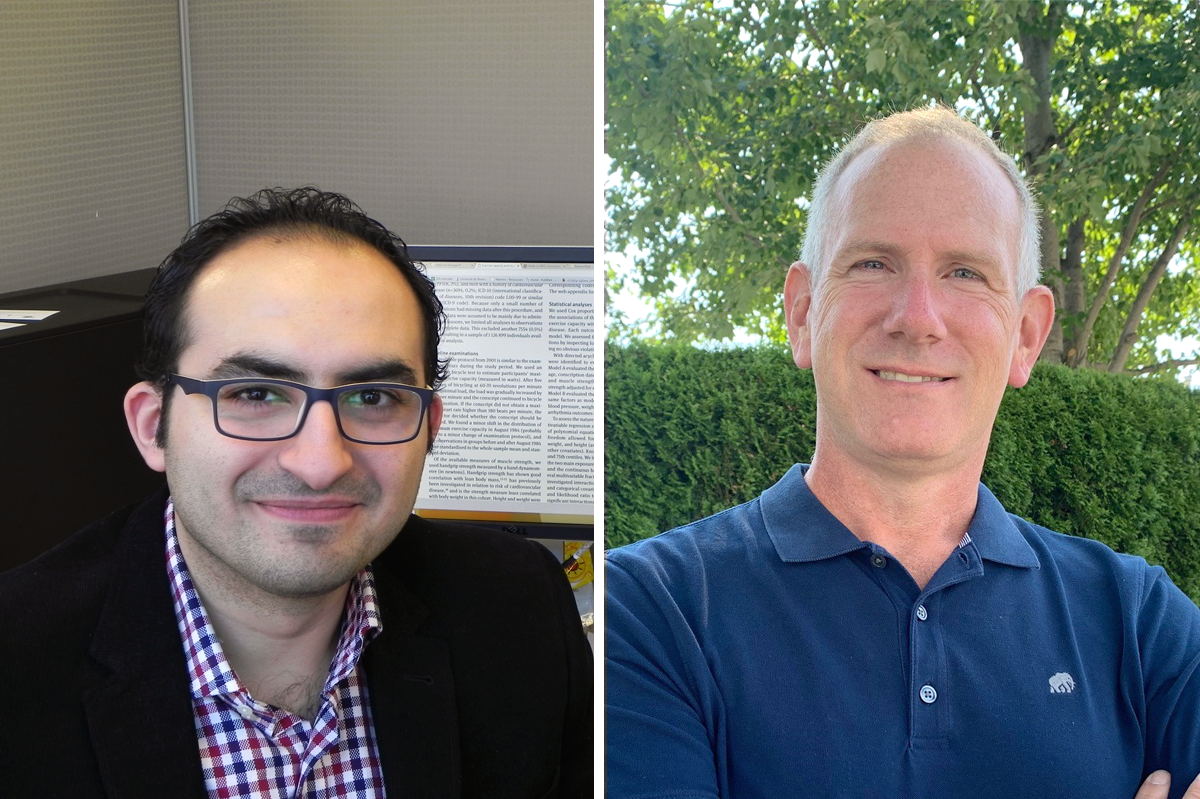
Dr. Sherif Eltonsy, College of Pharmacy, and Dr. Chris Anderson, Max Rady College of Medicine, each received one-year grants from The Winnipeg Foundation Innovation Fund for their cutting-edge projects.
Winnipeg Foundation Innovation Fund awards diverse Rady Faculty projects
Two interdisciplinary research teams at the University of Manitoba’s Rady Faculty of Health Sciences have received one-year grants from The Winnipeg Foundation Innovation Fund for cutting-edge projects that will advance research in the areas of brain disease and mother-infant health.
“I think these two projects illustrate the diversity of the kinds of projects The Winnipeg Foundation supports, which expand the spectrum of research with high-risk, high-reward initiatives,” says Dr. Peter Nickerson, Vice-Dean (Research) and Distinguished Professor, Rady Faculty of Health Sciences.
Role of endothelial NMDA receptors in glutamate-induced glioma growth
Dr. Chris Anderson, pharmacology and therapeutics professor, Max Rady College of Medicine, and director, Neuroscience Research Program, Kleysen Institute for Advanced Medicine, leads a team that will further research into glioblastomas, a deadly form of brain cancer with few treatment options and a median survival time of less than 15 months.
Along with co-leads Dr. Tanveer Sharif, department of pathology, and Dr. Ji Hyun Ko, department of human anatomy and cell science, Anderson will study whether a specific cell protein in the lining of brain blood vessels called an NMDA receptor, represents a viable new target for comprehensive therapeutic investigation.
“Dr. Sharif’s collaboration with McMaster University gives us access to patient glioblastoma samples, which we can study in Manitoba,” Anderson says. “We will culture the glioblastoma cells with brain endothelial cells to study the nature of molecular interactions between them, in detail, including the role of NMDA receptors. It’s kind of a simple approach, but it will be effective in allowing us to determine the role NMDA receptors play in glioblastoma cell movement and tumour expansion.”
The second part of the project will involve studying the development of tumours after transplanting patient-derived glioblastoma samples into live mice.
“Using MRI and PET imaging, as well as other state-of-the-art approaches, we will look at patterns of glioblastoma cell infiltration, as well as tumour size, blood flow and metabolism. Performing these experiments in mice genetically engineered to eliminate NMDA receptors in endothelial cells will allow us to directly test the role of this intriguing host target,” says Anderson.
Big data in mother-infant health research
Dr. Sherif Eltonsy, assistant professor in the College of Pharmacy, was also awarded $100,000 grant, for a multi-site project that will create a national database on the effects of medications on mothers and their offspring.
“The idea is to use real-world data to inform mothers, policymakers and physicians on the effects of medications; which are the safest to use and which pose a risk to mother or infant health,” Eltonsy said. “Pregnant women are excluded from randomized trials, so often this becomes the only way to assess the safety of most medications in the market on mothers and infants.”
Eltonsy, a pharmacoepidemiologist with an academic focus on drug safety, leads the project with two researchers from the Max Rady College of Medicine, Dr. Marcus Ng and Dr. Chelsea Ruth, who specialize in neurology and neonatology respectively. The team is collaborating with researchers in Quebec, Saskatchewan and Alberta.
“The project aligns perfectly with The Winnipeg Foundation Innovation Fund as an interdisciplinary innovative project with short-term tangible outcomes – answers to questions mothers have about how best to keep themselves and their newborns safe – as well as a sustainable long-term platform that can be used regularly for big data analyses in mother-infant health,” Eltonsy said.
During the next year, Eltonsy’s team will focus on creating the infrastructure of the project and developing a pilot demonstration using epilepsy medications data. “We plan to create a national epilepsy and mother-infant health group covering over 1.5 million pregnancies and 20 years of follow-up,” he said.
The two grants are part of The Winnipeg Foundation’s $1-million commitment, over five years, to support cutting-edge medical research projects through the Rady Faculty of Health Sciences at the University of Manitoba.







